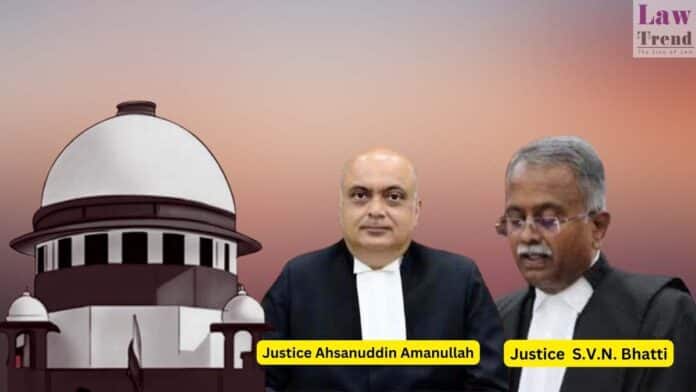The Supreme Court of India, in a judgment reinforcing the distinct boundaries of judicial powers, has held that a court cannot rehear a matter or sit in appeal of its own order under the guise of its review jurisdiction. A bench of Justice Ahsanuddin Amanullah and Justice S.V.N. Bhatti made the observation while setting aside
To Read More Please Subscribe to VIP Membership for Unlimited Access to All the Articles, Download Available Copies of Judgments/Order, Acess to Central/State Bare Acts, Advertisement Free Content, Access to More than 4000 Legal Drafts( Readymade Editable Formats of Suits, Petitions, Writs, Legal Notices, Divorce Petitions, 138 Notices, Bail Applications etc.) in Hindi and English.




